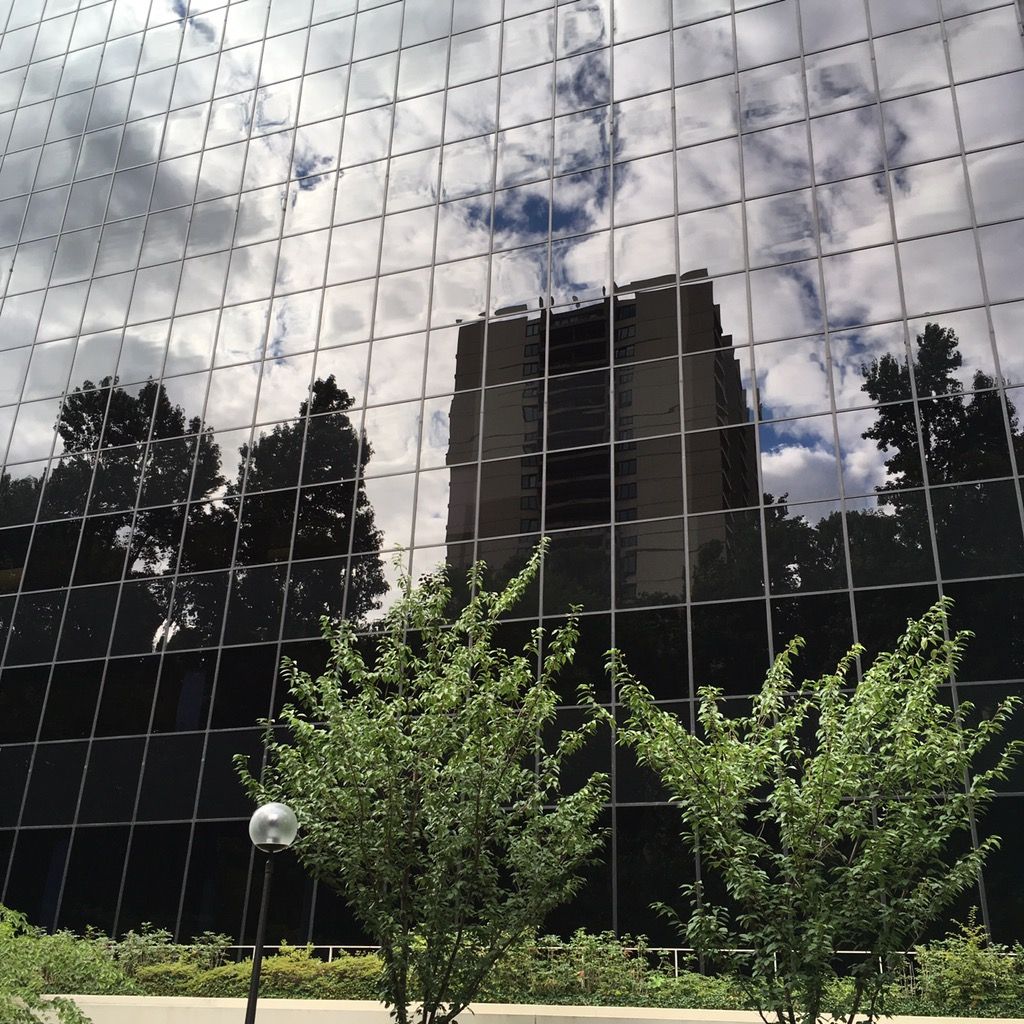|
Photo Credit: M. Boyd One of the things I loved most about faculty life was the fact that New Year’s Day came three times a year. First, there’s the Academic New Year: the start of fall semester, which somehow manages to feel hopeful, despite our recognition of how buried we’ll eventually be by an excess of obligations. Of course, there’s the last New Year, undoubtedly the favorite, when summer begins. This one is a slow unwinding, a long-awaited loosening of a grip we hadn’t realized we’d been holding so tightly. Finally, there’s January's New Year, which nonacademics celebrate along with us, and which feels like a brisk wind whipping through our lives, sweeping aside what’s stale and making way for things unseen. This New Year provokes a degree of reflection that isn’t always part of the other two New Year’s Days, where we sift through what came before to try to figure out what the semester and year ahead will look like. If you’re lucky, your Fall to-do list was perfectly calibrated to the time, energy, and enthusiasm at your disposal. You ended the semester with plenty of time to prep for whatever celebrations or practices you pursue at the end of the year. And you managed to strike that perfect balance between quiet, restorative time and the flurry of activity that seems endemic to December in the U.S. But if you’re like many scholars I know, you may have found yourself looking around at the end of last semester, wondering how—despite your best intentions—you ended up so exhausted. I found myself there long before December and, as 2016 drew to a close, I started hearing from more and more people facing the same problem. These words, from a scholar I’ll call Mina, struck a chord when I read them in one of my online support groups: "Like several of us who took stock of what we were busy doing this year, I decided to do the same for this fall semester. I'm laid in bed with the flu and back pain and decided to see if it's because of overworking? I've single parented for the past 12 yrs. which is another dimension. Mina’s post points out what we rarely say when speaking reverently about New Year reflections: it’s not an inherently good thing to find that you’ve gotten a lotta shit done. While it might look good to others or even soothe our imposter-syndrome-fears, getting a lot done can actually depress and demoralize you when the scope of your accomplishments are out of proportion to your capacity. It can take a toll on your health. It can diminish your commitment to your work. And if your Spring semester is shaping up to be just as full as Fall was, reckoning with your list of accomplishments might just make you feel a bit powerless. So if you’ve looked back on Fall 2016 and want the next semester to be different...what should you do? Look Backward…Ahead of Time On the surface, this is a planning question, one that can be addressed by taking action and establishing routines. I recommend these strategies regularly to people who attend my writing retreats and have seen their power. You could create a semester plan and schedule your writing in your calendar. You can decide ahead of time how many of what kind of task you’ll do, then create a template for saying No and cut and paste it into any request outside the things you committed to before the term begins. These are just a few strategies that help you take charge of your time, and I practice and recommend them regularly to scholars trying to create a writing life for themselves. But while all of those are extremely powerful strategies, they’re not always the best way to keep yourself from doing too much. First of all, planning can be overwhelming, even for someone like me who loves it. Its first stages lay bare the David vs. Goliath nature of your situation, and the reasonable woman shies away from that level of detailed, time-tabled forward thinking. If you never finish your plans—or worse, never look at them once they’re done—then you can create all the to-do lists you want, but it it’s not going to be very helpful. Even if you're one of those folks willing to muscle through the painful bits for the sake of that yellow brick road to accomplishment, there’s something missing from the planning process, a kind of emotional resonance whose absence is hard to spot. The thing is, a plan tells you where to go and how to get there. But it doesn’t tote up the full cost we’re paying for the trip. It doesn’t viscerally remind us of what the journey will be like, or how we’ll feel upon arrival. Sometimes a better place to start when planning out your semester is to begin with what I call a Forward Feeling Reflection. That is, write your end-of-Spring reflection right now as a way to unearth what you’d really like the semester to be like. Visualizing what you want is a proven technique I love to use in my writing coaching. But for many people it can feel a little woo woo, or maybe just hard to figure out how to do. This is one of the other things I really appreciated about Mina’s post: Although I’m not sure she meant it to, it serves as a perfect guide to doing your own Forward Feeling Reflection. Mina’s post included two key components of this technique that can guide you if you decide to try it out: first, she had hard data on the work she’d put in and what she’d gotten done (numbers of hours spent, letters written, lectures given, etc.). Even when she’s not specific, her use of the word “countless” gives a clear sense that a good deal of her time was taken up with these tasks. The second, less obvious component of Mina’s reflection is that her numbers are supplemented with a description of her physical and feeling state. When she wrote it, she was “laid in bed with the flu.” We know that some of her committee work wasn’t just time-consuming, but it “sucked the life out of” her. Even in the instances when she doesn’t explicitly name her feelings (the committee and advising work, as well as the writing), we can guess, by contrast, that these tasks did not drain her in the same way that some other work did. My point is, the Forward Feeling Reflection works precisely because it gives you the multiple kinds of information you need to make decisions about what you’ll commit to this spring: it specifies not just what you would do, but how it would feel, and what you would have to give up in order to get it done. How to do it? Even though this author’s post was a backward reflection, it still provides a neat, clean illustration of the four crucial components we need: try it yourself.
After finishing the Forward Feeling Reflection, it’s easy to think about how well it matches up with your plans, and what you might do to sync the two visions up. Do you remark on how quickly you got through grading even though you’ve assigned three essay exams to your class of 60? The one with no TA? Do you describe how great you felt about submitting these two long overdue chapters, even though you haven’t scheduled time for writing in your calendar? Are you dreamily writing the reflection from your family’s annual vacation spot, even though you’ve scheduled the final Curriculum Committee meeting for that same week? If you find a huge disconnect between the ideal you imagine for yourself and the things you’re currently putting in place, you still have plenty of time to right your ship. If you’re fine with the list of possible accomplishments, but can’t bear what you’d have to experience to achieve them, you can do something different. Right now. You can still reschedule meetings, back out of service requests, scale back end-of-term assignments (yes, even if you already put it on the syllabus. You really can do this.). The last term is gone, and we can’t bring it back. Nor can we stop this one from coming. But neither do we have to be held hostage by our old choices. It’s still possible—it’s always possible to make a change. Which is the whole point of the New Year, isn’t it? Want writing strategies like these delivered straight to your inbox? Subscribe to our Loveletters: bite-sized, monthly essays filled with ideas, inspiration, and information for academic writers.
Cheryl
1/18/2017 04:24:05 pm
Yes. Loved it!
Michelle
1/18/2017 05:05:53 pm
Thanks so much Cheryl! I was inspired by Mina with this one.
Joycelyn
1/13/2022 01:57:53 pm
Michelle, thanks so much for guiding us back to this blog in 2022. I've just done a Forward Feeling Reflection from the vantage point of May 2022. I'm feeling triumphant, imagining all I've accomplished as I stand in my home office putting away the last of the books I used to complete my last book review of the term. Although I've been feeling pretty shitty in Jan 2022, I notice the exercise has me imagining elation in May, rather, if also keenly aware of all I'm planning, of what I'd forgotten I'm obligated to do in coming weeks. Thank you!
Michelle Boyd
1/14/2022 01:45:30 pm
I love it Joycelyn! Hang on to that feeling of elation. I haven't thought this through, but if you have the energy, you might try the same exercise for September--but do it now. This might help you keep yourself from overbooking NOW for summer. This is me assuming you have the same problem I do with aiming for too much lol Comments are closed.
|
|
© 2018 InkWell Academic Writing Retreats
|

